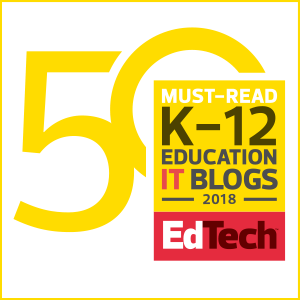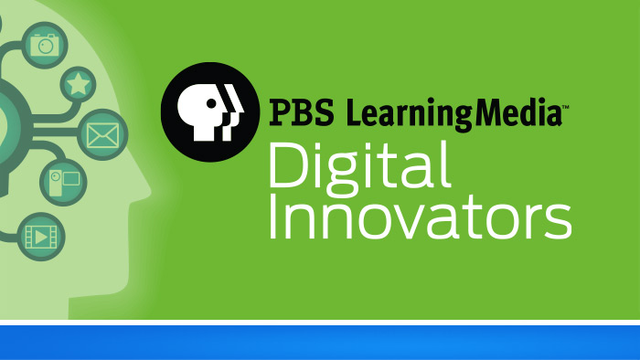First there were Blogs, then even Phlogs, and of course there are Glogs. While many educators are aware of Glogster, they may not know of the changes that have come and are coming to this awesome tool. The basic edition is still free, although there is even a change coming to the free edition. As always, feel free to subscribe to this Blog by RSS or email, follow me on twitter at (@mjgormans), and also discover some great resources at my 21centuryedtech Wiki! You will also find my postings at Tech and Learning Magazine. Now lets take a moment to check out some good gab from Glogster! – Have a great week – Mike
OK, I Am New – What is Glogster? (Or, Just Skip Down To Next Bold Heading Because You And Your Students Are Already Glogging)
What do you get when you mix up the whole genre of multimedia, smack it into a blog, and then artistically arrange it into an awesome interactive on-line poster. The results as all of you may know is a Glog, made popular by the people at Glogster! The benefits of using Glogster in the education include the opportunity for students to use a dynamic, multi-sensory learning program that fulfills Universal Design for Learning (UDL) principles, enables standards mastery, provides differentiated instruction and so much more. Are you a newbie to Glogster, or just want to get your class started? Then be sure to visit Glogster EDU, because that is where the free sign up resides for educators. What are the educational benefits of Glogster? First, students can become engaged in any curriculum by creating a Glog (interactive poster). Let your lesson plans run wild! It could be a book review, a science fair project, a biography of a famous person, a timeline, or an interactive report on anything! Perhaps you wish to work on the 21st Century Skill involving collaboration. Then start a class project Glog involving a project based learning activity or a unit of study! Glogster allows for school-level teacher management of students and classes claiming a private and safe student environment. Glogster really does allow for engagement of students in fun and creative activities which can be aligned to national educational standards along with those ever-important ISTE NET-S Standards. Take a moment and make your own test Glog and then more importantly, sign up!
The First Big Change … 50 Reasons To Sign Up Now For A Free Educational Glogster Account!
The free Educational Glogster Account allows teachers to create accounts for 100 student users! Beginning in November 2010 Glogster is lowering the number of student accounts to 50 per teacher. Sign up now and you have 50 more student accounts then in November. That really is 50 reasons to get a Glogster Edu Free account Now!
Most Gloster Changes Are In The Premium Account… And They Look Not Only Good… But Great!
OK, not everything is free… although the free version of Glogster really is pretty amazing! If your school or classroom wants to step its Glogging experience up a notch then you may want to investigate Glogster Premium For Education. In addition to the Free Version’s 100 student accounts, student account management, comment management, profiles management, and a public for all feature; Glogster Premium For Education includes a host of extra features. Some of these include direct teacher access to student work and nicknames along with classroom, project, and assessment management resources. There are also tools for presentations, portfolios, and class messaging.
The Other Changes!
On September 15, 2010 edu.glogster.com launched a new product interface and partnerships that will now allow teachers to share students and projects with each other at the school level. As part of this new solution, teachers and students can now be interconnected in a school-based educational network enabling them to work on collaborative cross-curricular projects within dynamic teacher accounts. Teachers can even share students with other teachers, create class projects, construct engaging homework assignments, and encourage the building of student portfolios. Glog presentations can be produced by teachers and students and better yet, teachers can invite students to participate in projects at the school-level as well as expanded classroom activities. Glogster claims these changes allow for a real school virtual environment, but in a safe, online setting. Martin Santorcl, Co-Founder & Product Director at Glogster states, “Our new Portfolio & Presentation features allow educators to file and sort many Glogs in one Digital Glog Book. This is the next step for digital literacy because now schools can easily create curriculum utilizing appropriate interactive multimedia books and then archive them for future teaching.”
Still More Changes… Glogster Has Also Enlisted New Partners
Are your students creating wikis? In its latest integrative application, Wikispaces users can now add a Glog to their wikis with one click from any Glogster EDU account. Now teachers, students, librarians, and other educators can make their Wikis even more powerful, and do it with ease. Are you an Edmodo user? Glogster EDUcators can now move their Glogs into their Edmodo live feed clicking the button under each Glog (“Edmodo this Glog”). This allows educators to easily showcase their multimedia content.
Ten Glogster Links To Check Out
Glogster Education Resource Library – The Glogster EDU Educator Resource Library is a 29 page PDF document of outstanding examples of Glogsterlesson plans and rubrics, standards alignment activities, and Glog building media resources. It has been built by and for the Glogster community of educators.
Glogopedia – The very best of educational Glogs. A great place to get inspired and create Glogs to be used in the classroom and activities for students.
Glog Categories – Check out thousands of Glogs by subject. A lot of wonderful ideas reside in these teacher and student works.
Certified EDU Glog Ambassador – Are you already working hard teaching students to Glog and providing Glog expertise to other professionals? Take a look at this program with a lot of perks, including a free premium upgrade!
The G Lab – Great place to share your Glog Experience while learning from others.
Glogster Tutorial – A great five minute tutorial for educators on how to set up an educator account and use Glogster by Traci Blazosky
Discovery Education On Glogster – Great short tutorial presented by Discovery’s Steve Dembo and company.
Adding Video and Audio To Glogster – Short tutorial video on using open source Camstudio to import video and audio into Glogster.
ABC News – An excellent news story on Glogster
Make A Virtual Science Fair – A fantastic way to use Glogster to create a Digital Science Fair project using Glogster.
Hope I was able to provide some new Glogster information for those just starting and those pro gloggers! While I am a free user, I will saving my pennies to invest in that Premium Account. Be on the look out for my Advanced Google Search and my Evaluating a Web Page Series. You can also find a variety of my postings under Blogs at Tech & Learning Magazine. Take a moment to leave a comment and also subscribe to this blog by RSS or email, share with others, and as always follow me on twitter (@mjgormans). See you soon and happy Glogging! – Mike



















